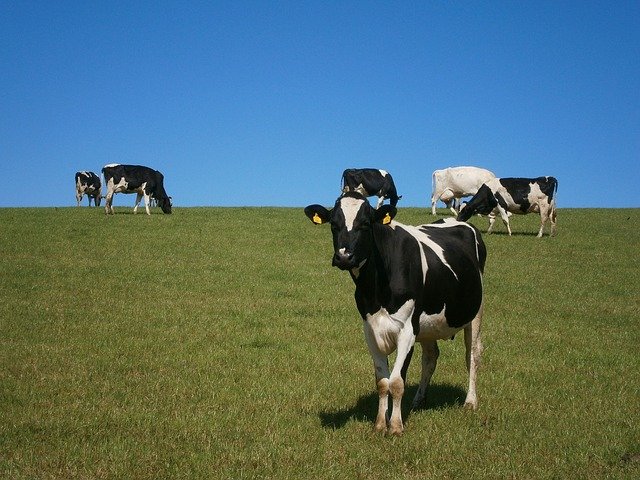Comprehensive New Review of Monsanto’s Glyphosate Underscores Urgent Need for Global Action
In a “state of the science” review released today, Pesticide Action Network (PAN) International presents a large body of research documenting the adverse human health and environmental impacts of glyphosate and glyphosate-based herbicides and underscores the need for these to be phased out globally. Environmental and health advocates say the monograph on the world’s most widely used herbicide, commonly known as Roundup, should serve as a wake up call for regulators, governments and users around the world.
Adverse human impacts detailed in the review include acute poisoning, kidney and liver damage, imbalances in the intestinal microbiome and intestinal functioning, cancer, genotoxicity, endocrine disruption, reproductive and developmental reduction, neurological damage, and immune system dysfunction.
Aggressive public relations and marketing by glyphosate’s developer, Monsanto, has resulted in the widespread perception that the chemical is ‘safe’. Registration processes continue to allow its use without raising concerns about its safety even as new data identifying adverse effects emerge.
This review dispels the so-called safety claims and highlights the urgent need to re-examine the authorization of products containing glyphosate. A full chemical profile is presented, along with the regulatory status of products containing glyphosate in many countries and information on viable alternatives.
Glyphosate is included in PAN International’s “List of Highly Hazardous Pesticides” (1) targeted for global phaseout. The global network is calling for the herbicide to be replaced by agroecological approaches to weed management in diversified cropping systems and non-crop situations.
Glyphosate is currently sprayed on numerous crops and plantations, including about 80% of genetically engineered (GE) crops. It is also used as a pre-harvest desiccant, so crops such as wheat have a uniform moisture content at harvest time. This practice results in high glyphosate residues in foods. It is also widely used in home gardens and public places including roadsides, and semi-natural and natural habitats. Due to its widespread use, residues are now detected in different types of foods, drinking water, wine and beer; and even in non-food products derived from GM cotton. The extent of human exposure is confirmed by the presence of glyphosate in human urine wherever it has been tested, principally in Europe and North America. It has also been found in breast milk in the USA.
The 2015 classification by the International Agency for Research on Cancer (IARC) of glyphosate as a probable human carcinogen has resulted in widespread concern about its continued use, especially pre-harvest and in public places.
Some countries, including Sri Lanka, Italy and France have imposed a partial ban and/or phase out of the spraying of glyphosate in agriculture and in public areas. The European Union has extended approval for glyphosate for only 18 months instead of the usual 15 years.
Environmental impacts detailed in the monograph are no less concerning, and include adverse effects on ecosystem functioning, pollination services, biological controls, soil fertility and crop health. Residues are widespread in the environment, including in rainwater, surface and ground waters, and the marine environment. Glyphosate can persist in some soils for up to 3 years; and there is some evidence of bioaccumulation.
Resistance to glyphosate is now recorded in 35 weed species and in 27 countries, mostly caused by the repeated use of glyphosate in GE crops, no-till agriculture, and amenity use.
Soil & Health NZ Inc. past co-chair Dr Elvira Dommisse points out that, “the monograph also contains a useful section on alternative weed management and provides information on a wide variety of non-chemical approaches to weed management in various situations. These are people-friendly and environmentally-friendly, resulting in weed management that is benign or even beneficial to ecosystems. We can and should embrace such methods to preserve and restore our soils and waterways and to minimise health risks to human and animals.”
MEDIA CONTACT
Dr Meriel Watts
PAN New Zealand
+64-21-1807830; merielwatts@xtra.co.nz
Dr Elvira Dommisse
021 0575 123 elvira@clear.net.nz
References:
The full Monograph review can be accessed here: https://pan-international.org/wp-content/uploads/Glyphosate-monograph.pdf
Supporting document:
(1) PAN International’s “List of Highly Hazardous Pesticides”
https://pan-international.org/wp-content/uploads/PAN_HHP_List.pdf
Quotes from PAN International representatives:
Keith Tyrell, Director, PAN-UK:
“This new study from PAN International’s team of scientists clearly shows that glyphosate can cause a multitude of health and environmental problems. Our regulators need to wake up and ban this chemical now.”
Dr Meriel Watts, PAN New Zealand:
“The time has come for global recognition of the widespread harm caused to people and the environment from the constant use of glyphosate. For too long regulators have ignored the mounting evidence of damage, hiding behind unpublished studies by Monsanto, which not surprisingly paint a picture of a benign chemical startlingly at odds with reality.”
Fernando Bejarano, PAN Mexico (RAPAM)
“The intrinsic hazards of glyphosate and their use in tolerant transgenic crops are unacceptable if we want to achieve a sustainable food system, so we need a global phase out and a shift in policies promoting instead agroecological alternatives for weed control and crop rotation in diversified crop systems.”
Dr. Peter Clausing, PAN Germany:
“In 2017 the European Chemicals Agency has to decide whether it accepts the compelling evidence for glyphosate’s carcinogenicity and declares it a carcinogen. This would be an overdue acknowledgement of the reality.”
Dr. Emily Marquez, staff scientist, PAN North America:
“The glyphosate mess illustrates the problems with industrial agriculture. Farmers are again trapped on a pesticide treadmill, as widespread adoption of Monsanto’s genetically engineered “Roundup-Ready” crops resulted in glyphosate-resistant superweeds. And yet again, human health impacts of the chemical come to light after years of widespread use. It’s time to shift away from this failing cycle of chemical reliance.”
Jayakumar Chelaton, PAN India
“Every month we get a new story of how glyphosate is harming people in the farms and off farms in rural India. It is clearly damaging people and planet.”
Sarojeni V. Rengam, PAN Asia and the Pacific
“Glyphosate is a highly hazardous pesticide. There are other ecosystem based non-chemical alternatives that do not require the use of such hazardous herbicides. We therefore urge Monsanto and other agrochemical corporations to stop the production and marketing of glyphosate in order to ensure the health of people and the environment.”
Dr Angeliki Lyssimachou, PAN Europe
“This remarkable compilation of scientific studies reveals that glyphosate-based pesticides -despite what their manufactures’ claim- are far from ‘safe’. Hundreds of non-industry funded studies show that these products are gradually poisoning our people, our environment and its ecosystems. Regulators must stop playing blind and take action to ban all uses of glyphosate.”


